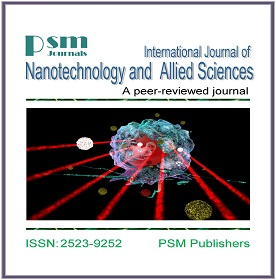Use of Molecular Markers in Improvement of Cotton for Agronomic Traits
Keywords:
Molecular marker, Single nucleotide polymorphism, Cotton Improvement, GWAS, QTL.Abstract
Upland Cotton (Gossypium spp) is known as the largest natural fiber and vegetable oil source worldwide, to increase the superiority of agronomic traits withstand contrary abiotic and biotic stress in the field and fiber/yield qualities to fulfill all the necessity of advance spinning technology. Upland cotton increase through conventional plant breeding is a time consuming; present circumstance molecular markers established that effective tools to speed up the plant breeding programme for cotton improvement. Especially accentuate is given to application, obstacles, and perspectives of marker-assisted breeding since it appears to be more hopeful in falsify novel gene that are used in the cotton germplasm. The development of system quantitative breeding/genetics in molecular marker-helps for breeding programme would be necessary requirement to understand its role in cotton. While the same time, the function of genetic engineering and in vitromutagenesis cannot be used out in genetic melioration of cotton. In the demonstrate variety of molecular markers are useable, option of molecular marker depends on the users. The critique article gives a over view of versatile molecular markers used in cotton possess, Inter simple sequence repeats (ISSR), Random Amplified polymorphic DNA (RAPD), Amplified fragment length polymorphism (AFLP), Restriction fragment length polymorphism (RFLP), Sequence Related Amplified Polymorphism (SRAP), Single Nucleotide Polymorphism (SNP), and Simple sequence repeats (SSR), Above all molecular markers act a vital role in for betterment of crop improvement programme such as (a) Construction of linkage Map (b) Investigation of genetic diversity in cotton, (c) Marker Assisted Selection (MAS) (d) QTL investigation for agronomic and fiber related traits in cotton.







